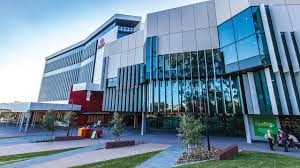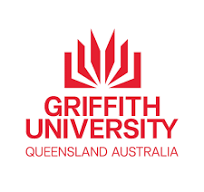
BACHELOR OF FORENSIC SCIENCE


Overview
3 YEARS
YES
AU $39,000 PER YEAR
FEB, JULY, NOV
Overview
> Forensic investigators are skilled, dedicated professionals with the ability to keep an open mind and concentrate on hard evidence. In this degree, you will explore science in real life and receive training in handling criminal casework in forensic biology and forensic chemistry.
> You will develop in-depth knowledge of new forensic analysis methods and innovations, and gain valuable experience from real casework. You will practisepresenting expert evidence in moot courts. You will learn from academic staff who have been called to work on projects such as the forensic identification of victims of the Asian tsunami and the Bali bombings, and who provide expert evidence in Australian courts.
> In your first year, you will take core courses in biology, chemistry, molecular genetics and forensic investigation. In your second and third years, you willfocus on your chosen major and continue to develop your skills in core areas.
Majors
*Forensic Chemistry
*Forensic Molecular Biology
Professional recognition
> Professional recognition will vary depending upon your choice of major:
> Forensic Chemistry: The Australian and New Zealand Forensic Science Society (ANZFSS) and the Royal Australian Chemical Institute (RACI) recognise graduates of this award.
> Forensic Molecular Biology: The Australian and New Zealand Forensic Science Society (ANZFSS) and the Australian Society for Biochemistry and Molecular Biology (ASBMB) recognise graduates of this award.
Attendance information
> The Bachelor of Forensic Science is offered full-time on-campus at the Nathan campus. You may choose to study approved elective courses at other campuses if or where the program structure allows.
> As a full-time student you will generally attend 10-15 hours of scheduled classes per week throughout the trimester. Classes may be scheduled during the day and evening throughout the week. Some scheduled classes are held off-campus during the evenings - for example, moot court sessions in 3028NSC Forensic Evidence and the Expert Witness are held at the Brisbane Magistrates Court one evening per week over eight weeks.
> If you are an International student on a student visa, you must ensure that you enrol in a way that will allow you to complete your enrolment within the expected program duration as stated on your Confirmation of Enrolment (CoE).
My career opportunities
> You will be prepared to work as a DNA expert, a forensic molecular biologist, forensic chemist or forensic toxicologist and as an acknowledged expert in these or a variety of other roles within the criminal justice system. You will also be able to pursue scientific careers not directly related to forensic organisations, in areas such as molecular biology, analytical chemistry and biomedical science. You may also choose to undertake a fourth-year research honours program, which can lead to a PhD and a career in research.
Inquire Now
Entry Requirements
> Qualification: Nepalese Proficiency Certificate
> Your entry requirements include: Grade average of 89 in the final year results
> Qualification: School Leaving Certificate Examination awarded by National Examinations Board
> Your entry requirements include: Grade average of 3.6 in the final year results
> English language requirements apply to International applicants and other applicants whose previous study was undertaken in a language other than English. The minimum English language requirements for such applicants for entry to this program are as follows:
> A minimum overall band score of 6.5 on IELTS (Academic) with no sub-score of less than 6.0
OR a minimum score of 575 on TOEFL
OR an internet-based (iBT) TOEFL score of 79 (no sub-score less than 19)
OR no score less than 3+ in each skill of the ISLPR (conducted by ISLPR Language Services only)
OR a minimum overall score of 176 (no score less than 169) on C1 Advanced (formerly Cambridge Certificate in Advanced English) or C2 Proficiency (formerly Cambridge Certificate of Proficiency in English)
OR an overall score of 58 in the Pearson Test of English (Academic) with no score less than 50.
Fees
Tuition fees
> An International student pays tuition fees.
> Students are liable for tuition fees for the courses they are enrolled in as at the census date.
> The tuition fee for students who commence their program prior to 2014 is charged according to the approved program fee for the trimester in which the student commenced the program.
FEE (INDICATIVE): $39,000 per year
Scholarships
> file:///C:/Users/LANDMASRK%20EDUCATION/Documents/Scholarships%20and%20finance%20Griffith%20UNI.html
Popular Courses
Find your perfect course
Head Office
Kamaladi, Kathmandu
Tel: +977 14542781, 9845566225
E-mail: info@landmarkedu.com
Sydney office
46 Macquarie Street,
Parramatta, NSW
Tel: +61 415 122 814
Branch office
Tel: 056-590825
Tel: 021-590828
Tel: 977-71-591694



